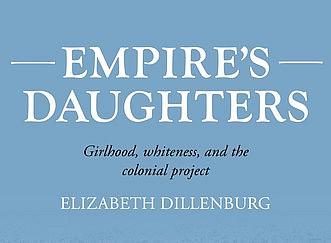This presentation traces the interconnected histories of girlhood, whiteness, and British colonialism in the late nineteenth and early twentieth centuries. Although girls are often consigned to the shadows in studies of colonialism, they nevertheless played a vital role in the empire as migrants, settlers, laborers, and creators of colonial knowledge and were heralded as “empire builders.” Yet their involvement in the empire was anything but straightforward. They not only supported—directly and indirectly—systems of colonial power but also resisted them. To examine the complexities of girls’ engagement and experiences in the empire, this presentation discusses the Girls’ Friendly Society, an organization that emerged in Britain and grew into a global society with branches throughout the empire. It specifically explores how the Society’s multifaceted emigration and imperial education programs constructed ideas of girlhood, race, and empire that then circulated globally. This presentation uses the Girls’ Friendly Society as a lens to explore the micropolitics of colonialism and argues that understandings of colonialism remain incomplete without considerations of girls and girlhood.
Elizabeth Dillenburg is Assistant Professor of History at The Ohio State University. She is a historian of modern Europe and European colonialism with a particular focus on gender and childhood in Britain and the British Empire. She has published articles, chapters, and essays on girlhood in the British Empire, the history of cricket, and women’s suffrage and co-edited a volume, Print Culture at the Crossroads: The Book and Central Europe. Her recent book, Empire’s daughters: Girlhood, whiteness, and the colonial project, was published in 2024 by Manchester University Press and is available as open access.
Introduction remarks and moderation by Prof. Heidrun Zettelbauer (University of Graz)
To participate, please register at events-global-governance(at)uni-graz.at

